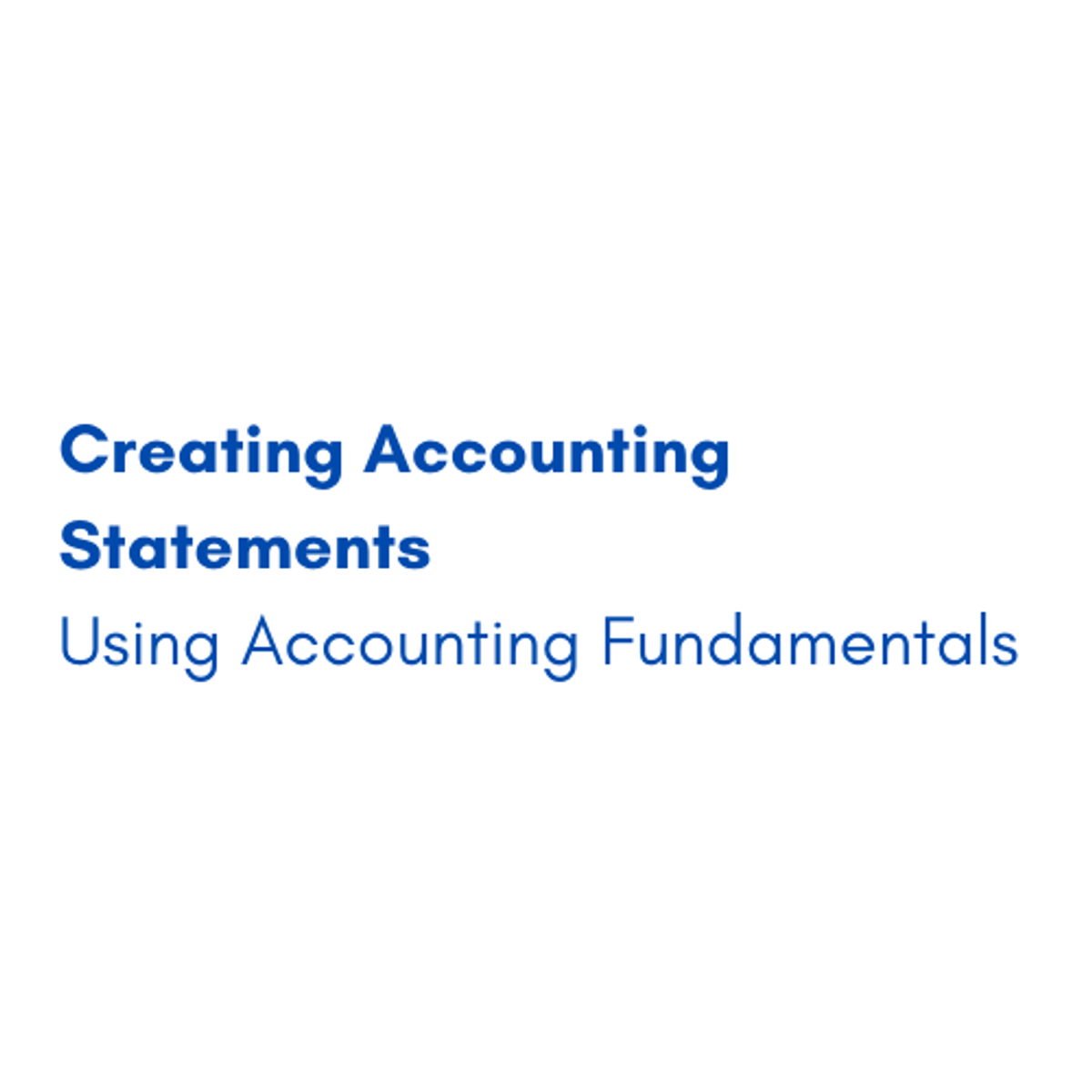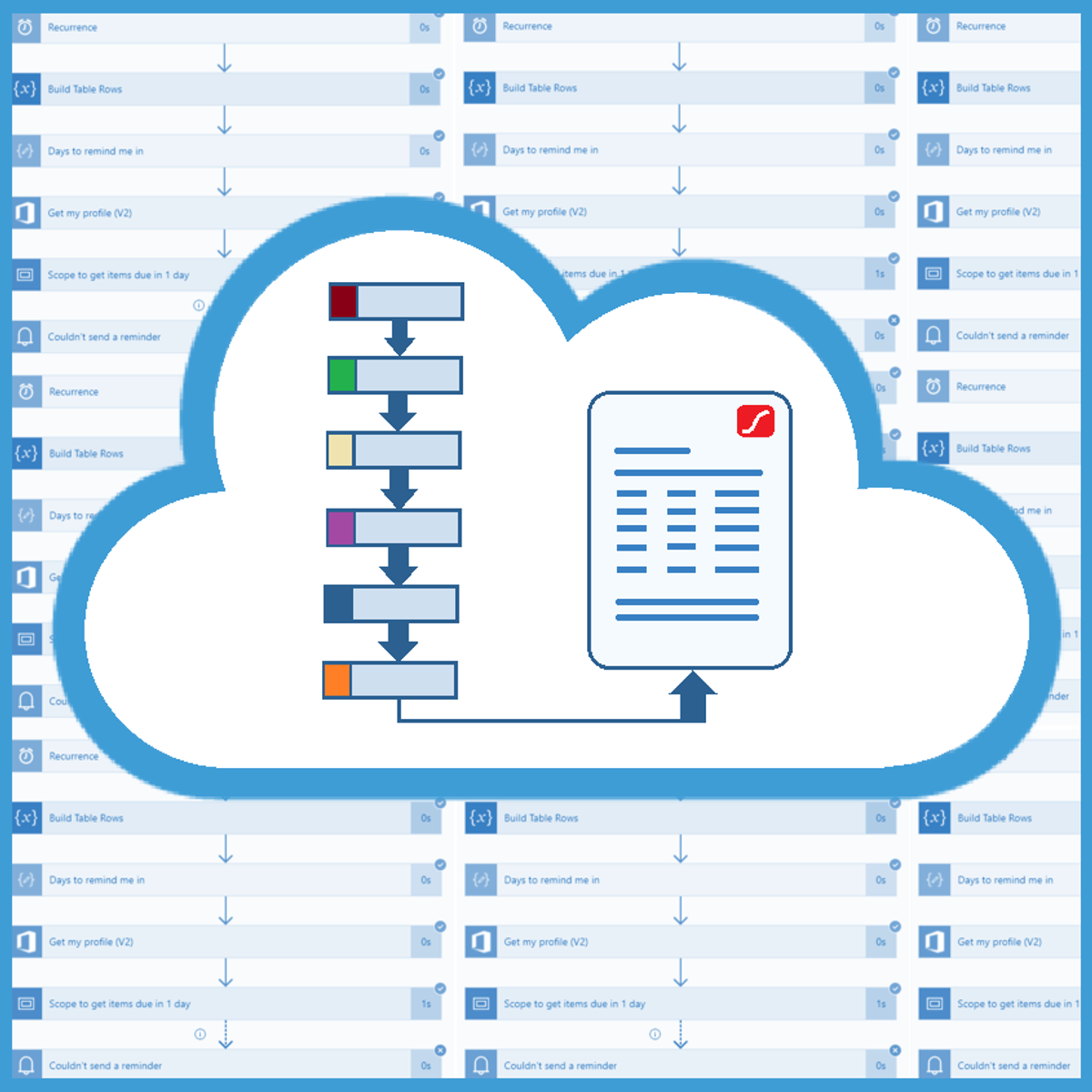Bookkeeper
Becoming a Bookkeeper: Your Guide to a Career in Financial Record-Keeping
Bookkeeping is the systematic recording, organizing, and storing of financial transactions for a business or organization. It forms the bedrock of sound financial management, providing the essential data needed for accounting, tax preparation, and informed business decisions. Think of bookkeepers as the meticulous librarians of a company's financial story, ensuring every detail is accurately captured and easily accessible.
Working as a bookkeeper can be deeply satisfying for individuals who appreciate order, accuracy, and the logic of numbers. You'll play a critical role in a company's financial health, transforming raw transaction data into organized records. This process provides clarity and control, which is vital for businesses of all sizes across virtually every industry, offering diverse employment opportunities.
What Does a Bookkeeper Do?
Defining the Role and Purpose
At its core, bookkeeping involves maintaining a complete and accurate record of all monetary transactions. This includes purchases, sales, receipts, and payments. The primary purpose is to create a clear picture of a company's financial activities over time, ensuring that records are comprehensive, up-to-date, and comply with relevant standards.
Bookkeepers use ledgers, journals, and increasingly, specialized software to track financial data. They ensure that every cent is accounted for, categorizing transactions correctly so that financial reports accurately reflect the business's performance and position. This detailed record-keeping is fundamental for internal analysis and external reporting obligations.
A career in bookkeeping appeals to those who are detail-oriented, organized, and enjoy working with numbers. It requires trustworthiness and a commitment to accuracy, as errors can have significant financial consequences. It's a role that offers stability and is essential to the functioning of any organization.
These introductory courses provide a solid foundation in the principles and practices of bookkeeping.
Bookkeeping vs. Accounting: Understanding the Difference
While often used interchangeably, bookkeeping and accounting are distinct functions. Bookkeeping focuses on the *recording* of financial transactions. It's the process of systematically tracking the day-to-day financial activities of a business. Think of it as gathering and organizing the raw financial data.
Accounting, on the other hand, involves the *interpretation, analysis, classification, reporting, and summarization* of the financial data collected by the bookkeeper. Accountants use the bookkeeper's records to prepare financial statements, perform audits, analyze performance, forecast future results, and provide strategic financial advice. While a bookkeeper records *what* happened financially, an accountant analyzes *why* it happened and what it means for the future.
Many bookkeepers transition into accounting roles with further education and experience. Understanding the difference is key to charting your career path. Some smaller businesses might combine roles, but larger organizations typically have separate bookkeeping and accounting departments or personnel.
Essential Skills for Success
Success in bookkeeping hinges on a specific set of skills. Meticulous attention to detail is paramount; small errors in recording transactions can lead to significant discrepancies later. Strong organizational skills are also crucial for managing large volumes of financial data effectively and ensuring records are easily retrievable.
Numerical proficiency and comfort working with numbers are fundamental. While advanced mathematics isn't typically required, accuracy in calculations and understanding basic financial concepts are essential. Integrity and ethical conduct are non-negotiable, as bookkeepers handle sensitive financial information and must maintain confidentiality and honesty.
Proficiency with bookkeeping software like QuickBooks or Xero, as well as spreadsheet software like Microsoft Excel, is increasingly important. Good communication skills are also beneficial for interacting with clients, managers, and potentially accountants or auditors.
These courses cover fundamental accounting principles essential for bookkeepers.
These books provide accessible introductions to accounting concepts.
Industries Employing Bookkeepers
Virtually every industry requires bookkeeping services, making it a versatile career choice. Small businesses across retail, hospitality, trades, and professional services often rely heavily on bookkeepers to manage their day-to-day finances. These roles might involve handling all aspects of the company's books.
Larger corporations in sectors like manufacturing, finance, healthcare, and technology also employ bookkeepers, often within larger accounting departments. In these settings, bookkeepers might specialize in specific areas like accounts payable, accounts receivable, or payroll. Non-profit organizations also need skilled bookkeepers to manage donations, grants, and operational expenses accurately.
Furthermore, many bookkeepers work for accounting firms, providing services to multiple clients. There's also a significant opportunity for freelance or self-employed bookkeepers who build their own client base, offering flexibility and autonomy. The ubiquity of financial transactions means bookkeeping skills are consistently in demand across the economy.
Day-to-Day Work and Key Responsibilities
Core Daily Tasks
A bookkeeper's daily routine often involves recording all financial transactions, such as sales revenue, expense payments, purchases, and cash receipts. This includes verifying the accuracy of documents like invoices and receipts before entering them into the appropriate accounts, often using specialized software.
Maintaining the general ledger is a central task. This involves posting journal entries that summarize individual transactions into ledger accounts. Bookkeepers also frequently handle invoicing – creating and sending bills to customers – and tracking payments received. Managing accounts payable (bills owed by the company) and accounts receivable (money owed to the company) is also common.
Depending on the role, tasks might include processing payroll, making bank deposits, and performing initial bank reconciliations to ensure the company's records match the bank's statements. Consistency and accuracy in these daily tasks are vital for maintaining reliable financial records.
These resources delve into the mechanics of recording transactions.
Ensuring Compliance and Accuracy
A critical responsibility for bookkeepers is ensuring compliance with relevant financial regulations and tax laws. This involves accurately tracking income, expenses, and payroll information needed for tax filings. They must stay aware of deadlines and requirements for sales tax, payroll taxes, and income tax reporting.
Bookkeepers play a role in preparing data for financial reporting standards, ensuring that transactions are categorized correctly according to Generally Accepted Accounting Principles (GAAP) or other applicable frameworks. While accountants often finalize financial statements, bookkeepers provide the accurate, foundational data required.
Accuracy is paramount. Bookkeepers regularly reconcile accounts – comparing internal records to external sources like bank statements or vendor invoices – to identify and correct discrepancies promptly. This diligence helps prevent errors, detect potential fraud, and ensures the reliability of financial information used for decision-making.
Mastering Bookkeeping Software
Proficiency in bookkeeping software is essential in the modern workplace. Tools like Intuit QuickBooks (both Online and Desktop versions), Xero, Sage, and others automate many tasks, improving efficiency and reducing manual errors. Bookkeepers use this software for recording transactions, generating invoices, processing payroll, managing bills, and producing basic financial reports.
Spreadsheet software, particularly Microsoft Excel or Google Sheets, remains a vital tool. Bookkeepers use spreadsheets for various tasks, including data analysis, creating custom reports, performing reconciliations, and managing budgets or forecasts that might not be standard features in basic bookkeeping software.
Staying updated with software features and best practices is important. Many online courses and certifications focus specifically on mastering popular bookkeeping platforms, which can significantly enhance employability and efficiency.
Explore these courses to gain proficiency in widely used bookkeeping software.
This comprehensive guide covers various versions of QuickBooks.
Collaboration and Communication
Bookkeepers rarely work in isolation. They frequently collaborate with accountants, providing them with organized financial records needed for preparing tax returns, audited financial statements, and complex financial analysis. Clear communication ensures accountants receive accurate and timely information.
They also interact with auditors, both internal and external. During an audit, bookkeepers provide necessary documentation, answer questions about specific transactions, and help auditors verify the accuracy of the financial records. Maintaining well-organized records greatly facilitates the audit process.
Internally, bookkeepers may communicate with managers about expense tracking, budget variances, or cash flow issues. They might also interact with other departments regarding invoices, payments, or payroll matters. Effective communication skills are therefore valuable for explaining financial details clearly and collaborating smoothly.
Educational Pathways to Bookkeeping
Foundation in High School
While not always mandatory, certain high school courses can provide a strong foundation for a bookkeeping career. Mathematics courses, particularly those covering algebra and basic arithmetic, develop essential numerical skills. Business or introductory accounting classes can offer early exposure to core concepts like debits, credits, and financial statements.
Computer literacy courses are also beneficial, given the reliance on software in modern bookkeeping. Developing typing skills and familiarity with spreadsheets can be advantageous. Overall, a solid academic record demonstrating diligence, accuracy, and responsibility is helpful.
Focusing on developing good study habits, organizational skills, and attention to detail during high school will serve aspiring bookkeepers well, regardless of the specific subjects taken.
These courses cover foundational math skills relevant to bookkeeping.
Formal Degrees and Credentials
While a bachelor's degree isn't always required to start as a bookkeeper, formal education can enhance job prospects and earning potential. An associate degree in accounting or bookkeeping provides a structured curriculum covering fundamental principles, financial statement preparation, payroll accounting, and relevant software.
A bachelor's degree in accounting offers a more comprehensive education, delving deeper into accounting theory, auditing, taxation, and business law. This path often prepares individuals for broader accounting roles but is also highly valuable for advanced bookkeeping positions or transitioning into accounting later.
Comparing associate and bachelor's programs involves considering time commitment, cost, and career goals. An associate degree can be a quicker entry point, while a bachelor's degree offers broader opportunities and is often a prerequisite for professional certifications like the Certified Public Accountant (CPA).
These courses cover intermediate and more advanced accounting topics often found in degree programs.
These textbooks are commonly used in accounting degree programs.
Professional Certifications
Professional certifications can significantly boost a bookkeeper's credibility and career prospects, even without a formal degree. Organizations like the American Institute of Professional Bookkeepers (AIPB) offer the Certified Bookkeeper (CB) designation, which requires passing an exam and demonstrating work experience.
The National Association of Certified Public Bookkeepers (NACPB) offers several certifications, including the Certified Public Bookkeeper (CPB) license. These credentials validate a bookkeeper's knowledge and skills according to industry standards, signaling competence to employers and clients.
Preparing for certification exams often involves dedicated study, potentially through preparatory courses or self-study using official materials. Maintaining certification typically requires adherence to a code of ethics and completion of continuing professional education (CPE) credits, ensuring skills remain current.
The Role of Continuing Education
The field of bookkeeping is not static; software updates, changes in tax laws, and evolving business practices necessitate ongoing learning. Continuing education is crucial for staying relevant and advancing in a bookkeeping career. This can take many forms, from short online courses and webinars to workshops and seminars.
Many professional certifications require CPE credits to maintain active status. This encourages bookkeepers to continuously update their knowledge in areas like accounting standards, software proficiency, tax regulations, and ethical practices. Keeping skills sharp enhances job performance and opens doors to more specialized or senior roles.
Embracing lifelong learning demonstrates professionalism and adaptability. It allows bookkeepers to offer greater value to employers or clients, potentially leading to promotions, higher pay, or the ability to take on more complex assignments.
Leveraging Online Learning and Self-Study
Developing Core Skills Online
Online courses offer a flexible and accessible way to acquire the core competencies needed for bookkeeping. Platforms like OpenCourser host numerous courses covering foundational principles, accounting software, payroll processing, and tax basics. Learners can study at their own pace, fitting education around work or personal commitments.
Many online programs are designed by industry experts or academic institutions, providing high-quality instruction. Look for courses that offer practical exercises, quizzes, and case studies to reinforce learning. Certificates of completion from reputable providers can also add value to your resume.
Online learning empowers individuals to build a strong knowledge base independently. Whether starting from scratch or upskilling, online resources provide a wealth of information to master bookkeeping fundamentals effectively.
OpenCourser's extensive catalog makes it easy to find and compare online courses across various providers. Use the search filters and read course summaries and reviews to select programs that align with your learning goals.
These courses cover essential bookkeeping and accounting software skills online.
This book offers a comprehensive overview suitable for self-study.
Gaining Practical Experience
Theoretical knowledge is important, but practical application solidifies understanding. Many online courses incorporate virtual simulations or projects using real-world scenarios and bookkeeping software. These exercises allow learners to practice recording transactions, reconciling accounts, and generating reports in a risk-free environment.
Consider seeking volunteer opportunities with non-profit organizations or small community groups. This can provide valuable hands-on experience while contributing to a good cause. Even managing personal finances meticulously using bookkeeping principles can build practical skills.
Building a portfolio of projects completed during coursework or volunteer work can demonstrate practical abilities to potential employers. Documenting the tasks performed and the skills applied provides tangible evidence of your capabilities.
These project-based courses offer hands-on practice.
Combining Online Learning with Freelancing
For those seeking flexibility or aiming for self-employment, combining online learning with freelance bookkeeping projects can be an effective strategy. Start with smaller projects for friends, family, or micro-businesses to build confidence and gain initial experience. Platforms connecting freelancers with clients can also be explored, though competition can be high.
Ensure you have a solid grasp of fundamentals and software proficiency before taking on paid work. Start with tasks you are comfortable with and gradually expand your service offerings as your skills grow. Maintaining clear communication, meeting deadlines, and ensuring accuracy are crucial for building a positive reputation.
Freelancing provides direct exposure to diverse business needs and real-world challenges. It's an excellent way to apply learned concepts immediately and develop client management skills alongside technical bookkeeping abilities.
Understanding Program Limitations
While online courses and self-study offer significant advantages, it's important to be aware of potential limitations. Non-accredited programs or courses without rigorous assessments may not carry the same weight with employers as formal degrees or recognized certifications. Verify the reputation and credibility of the course provider.
Self-directed learning requires discipline and motivation. Without the structure of traditional classes, learners must manage their own time and stay on track. Access to instructors for questions or clarification might also be limited compared to formal academic programs.
Ensure the online curriculum is comprehensive and up-to-date, especially regarding software and regulations. Supplement online learning with networking, seeking mentorship, or joining professional organizations to gain broader industry insights and support.
The OpenCourser Learner's Guide offers tips on structuring self-study and staying motivated when learning online.
Career Trajectories and Specializations
Starting Your Bookkeeping Career
Entry-level positions often serve as a gateway into the bookkeeping field. Roles like Accounts Payable Clerk, Accounts Receivable Clerk, or Payroll Assistant focus on specific aspects of the bookkeeping cycle. These positions provide foundational experience in processing transactions, managing specific ledgers, and using accounting software.
An Accounting Clerk or Bookkeeping Assistant might handle a broader range of tasks under supervision, including data entry, basic reconciliations, and preparing deposits. These roles offer exposure to various bookkeeping functions and are excellent stepping stones to more comprehensive positions.
Gaining experience in these entry-level roles builds practical skills and demonstrates reliability, paving the way for advancement to positions with greater responsibility, such as a Full-Charge Bookkeeper who manages the entire set of books for a company.
Mid-Career Paths and Specialization
With experience, bookkeepers can advance to roles like Full-Charge Bookkeeper, overseeing all aspects of a company's financial records. Opportunities also exist for specialization. Payroll Management involves handling all aspects of employee compensation, benefits, and tax withholdings, requiring up-to-date knowledge of labor laws and tax regulations.
Forensic bookkeeping is a growing field focused on investigating financial discrepancies and potential fraud. These specialists analyze records meticulously to uncover irregularities, often working alongside auditors or legal teams. This requires strong analytical skills and an investigative mindset.
Other specializations might include non-profit bookkeeping, construction bookkeeping, or focusing on specific industries with unique accounting needs. Pursuing certifications or additional training in a chosen specialty can enhance expertise and career prospects.
This book covers cost accounting, relevant for manufacturing and specialized analysis.
Transitioning to Related Fields
A strong background in bookkeeping provides an excellent foundation for transitioning into related financial fields. Many bookkeepers pursue further education, such as a bachelor's degree in accounting and potentially CPA certification, to become Accountants. This involves moving beyond recording transactions to analyzing, interpreting, and reporting financial information.
Some bookkeepers leverage their understanding of financial data to move into Financial Analyst roles. This typically requires developing stronger analytical, modeling, and forecasting skills, often through additional coursework or certifications like the Chartered Financial Analyst (CFA).
Other potential transitions include roles in auditing, tax preparation, or financial management, depending on individual interests, skills development, and further qualifications. The detailed understanding of financial operations gained through bookkeeping is highly transferable.
Entrepreneurial Ventures
Experienced bookkeepers have the option to start their own bookkeeping firm, offering services to multiple clients, typically small and medium-sized businesses. This path offers autonomy, flexibility, and the potential for higher earnings, but also requires business management skills.
Setting up a practice involves defining service offerings (e.g., basic bookkeeping, payroll, software setup), determining pricing structures, marketing to attract clients, and managing client relationships. Proficiency in cloud-based accounting software is essential for efficiently serving remote clients.
Building a successful bookkeeping business requires not only technical expertise but also strong organizational, communication, and entrepreneurial skills. Networking and potentially obtaining certifications can help build credibility and attract clients.
Industry Landscape and Future Trends
Automation and AI Impact
Automation and artificial intelligence (AI) are significantly impacting the bookkeeping field. Software can now automate many repetitive tasks, such as data entry from invoices and bank feeds, basic transaction categorization, and simple reconciliations. This increases efficiency but also shifts the bookkeeper's role.
Rather than being replaced, the role is evolving. Bookkeepers are increasingly focusing on higher-value tasks that require human judgment, such as verifying the accuracy of automated entries, handling complex transactions, troubleshooting discrepancies, and providing financial insights based on the data.
Adaptability and a willingness to learn new technologies are key. Bookkeepers who embrace automation tools and develop complementary analytical and advisory skills will be well-positioned for future success. The focus shifts from manual data entry to data oversight, analysis, and client communication.
The Rise of Cloud Computing
The widespread adoption of cloud-based accounting systems (like QuickBooks Online, Xero) has revolutionized bookkeeping. These platforms allow real-time access to financial data from anywhere with an internet connection, facilitating remote work and collaboration between bookkeepers, clients, and accountants.
Cloud software often integrates with other business tools (e.g., bank accounts, payment processors, CRM systems), further streamlining data flow and reducing manual entry. Automatic updates ensure users always have the latest features and security patches.
Bookkeepers must be proficient in navigating and utilizing cloud platforms effectively. Understanding data security best practices within the cloud environment is also crucial. This shift enables more efficient workflows and enhances the ability to provide timely financial information.
Demand for Specialized Skills
As routine tasks become more automated, demand is growing for bookkeepers with specialized skills. Forensic bookkeeping, focused on fraud detection and investigation, is one such area. Businesses increasingly recognize the need for experts who can identify financial irregularities.
Expertise in specific industries (e.g., construction, non-profit, e-commerce) is also valuable, as these sectors often have unique accounting requirements. Bookkeepers who understand these nuances can provide more tailored and effective services.
Furthermore, skills in data analysis and financial reporting are becoming more important. Bookkeepers who can not only maintain accurate records but also help interpret the data and generate meaningful reports add significant value to businesses.
Global Financial Standards
For bookkeepers working with international clients or multinational companies, understanding global financial reporting standards is becoming increasingly relevant. While standards like GAAP (Generally Accepted Accounting Principles) are used in the U.S., many other countries use IFRS (International Financial Reporting Standards).
While deep expertise in IFRS is typically the domain of accountants, bookkeepers may need a basic awareness of different standards, especially regarding transaction recording and classification if dealing with international subsidiaries or clients.
The trend towards global standardization aims to make financial statements more comparable across borders. Staying informed about major international accounting principles can be advantageous for bookkeepers working in a globalized business environment.
Explore courses related to international business and finance for broader context.
Ethics in Bookkeeping
Maintaining Confidentiality
Bookkeepers have access to highly sensitive financial information about businesses and individuals. Maintaining strict confidentiality is a fundamental ethical obligation. This means not disclosing financial data, client lists, salaries, or any other private information to unauthorized parties.
Secure handling of physical documents and digital files is essential. This includes using strong passwords, secure networks, and proper disposal methods for sensitive records. Breaches of confidentiality can damage trust, lead to legal repercussions, and harm the bookkeeper's professional reputation.
Ethical bookkeepers understand the importance of privacy and act with discretion at all times, ensuring that client and company information remains protected.
Avoiding Conflicts of Interest
A conflict of interest arises when a bookkeeper's personal interests could potentially compromise their professional judgment or objectivity. For example, having a financial stake in a company competing with a client, or handling the books for two competing businesses simultaneously without disclosure, could create conflicts.
Transparency is key. Bookkeepers should disclose any potential conflicts of interest to their employers or clients immediately. In some cases, it may be necessary to decline an engagement or implement safeguards to manage the conflict ethically.
Prioritizing the client's or employer's interests and maintaining impartiality in all professional dealings are crucial ethical tenets for bookkeepers.
Integrity and Accuracy
Integrity demands honesty and accuracy in all aspects of bookkeeping. This means recording transactions truthfully, not intentionally misrepresenting financial information, and adhering to established accounting principles and regulations. Accuracy ensures that financial reports provide a true and fair view of the company's financial position.
Bookkeepers have an ethical responsibility to correct errors promptly when discovered. They should resist pressure to manipulate financial records or engage in fraudulent activities. Upholding high standards of accuracy builds trust and credibility.
Professional certifications often include a code of ethics that members must adhere to, reinforcing the importance of integrity in the profession.
Consequences of Misconduct
Engaging in unethical or illegal behavior, such as embezzlement, fraud, or intentionally falsifying records, can have severe consequences. These can range from termination of employment and loss of professional certifications to civil lawsuits and criminal prosecution.
Financial misrepresentation can harm businesses, investors, lenders, and employees who rely on accurate financial information. The reputational damage to both the individual bookkeeper and the involved company can be substantial and long-lasting.
Understanding and adhering to ethical principles is not just about compliance; it's fundamental to maintaining trust and ensuring the integrity of the financial system. Whistleblower protections exist in many jurisdictions to encourage reporting of financial misconduct without fear of retaliation.
Skills for Career Changers
Leveraging Existing Organizational Skills
Many professions require strong organizational skills, which are directly transferable to bookkeeping. Individuals transitioning from administrative, project management, or logistics roles often excel at managing documents, tracking deadlines, and maintaining orderly systems – all vital in bookkeeping.
Highlighting experience in managing schedules, coordinating projects, maintaining filing systems (physical or digital), and ensuring tasks are completed efficiently can demonstrate aptitude for the structured nature of bookkeeping work. Frame past responsibilities in terms of process management and attention to detail.
Making the leap into a new field like bookkeeping can feel daunting, but recognizing the value of your existing organizational abilities is a great starting point. These skills form a solid base upon which to build specific bookkeeping knowledge.
Adapting Client and Customer Interaction Skills
Experience in customer service, sales, or client management roles develops valuable communication and interpersonal skills applicable to bookkeeping. Freelance bookkeepers, or those in client-facing roles within firms, need to communicate effectively with clients about their finances.
Skills in active listening, explaining complex information clearly (like financial reports or discrepancies), managing expectations, and building rapport are highly transferable. Experience handling inquiries or resolving issues translates well to addressing client questions about invoices, payments, or financial data.
Framing past customer interaction experience as client relationship management can strengthen a resume for bookkeeping roles, especially those involving direct client contact. Emphasize your ability to build trust and provide clear, helpful communication.
Applying Data Skills
Roles involving data entry, analysis, or reporting, even outside of finance, build skills relevant to bookkeeping. Familiarity with spreadsheets, databases, or data analysis tools demonstrates an aptitude for working with numerical information and software.
Experience in generating reports, identifying trends, or ensuring data accuracy in previous roles showcases analytical thinking and attention to detail. These abilities are crucial for tasks like reconciliation, financial statement review, and identifying potential issues in bookkeeping records.
If you're considering a career change, reflect on how you've worked with data in the past. Even basic data entry experience shows comfort with systematic recording, a core bookkeeping function. Highlighting these transferable data skills can make your profile more attractive.
Explore courses in Data Science or Productivity tools to enhance these skills.
Realities of Transitioning
Transitioning into bookkeeping requires dedication. You'll need to invest time in learning foundational principles, software, and potentially pursuing certifications. Be prepared for an initial learning curve and possibly starting in an entry-level position to gain practical experience.
Networking with professionals in the field, joining online communities, or seeking mentorship can provide valuable insights and support during the transition. Informational interviews can help you understand the day-to-day realities and specific skill requirements.
While your transferable skills are valuable, be realistic about the need to acquire specific bookkeeping knowledge. Embrace the learning process, celebrate small milestones, and remember that many successful bookkeepers started their journey with a career pivot. Patience and persistence are key.
Bookkeeping Around the World
Working Internationally
Opportunities for bookkeepers may exist in international markets, but navigating visa requirements and work permits is essential. Regulations vary significantly by country, and securing employment often requires sponsorship from a local employer or meeting specific immigration criteria.
Researching the job market and specific requirements for bookkeepers in your target country is crucial. Networking with professionals or recruiters in that market can provide valuable insights. Some countries may have specific certification or licensing requirements for bookkeepers.
Large multinational corporations or international accounting firms might offer opportunities for internal transfers or overseas assignments, which can sometimes simplify the immigration process.
Navigating Different Tax Systems
Tax systems differ considerably across countries. Bookkeepers working internationally must be aware of variations in income tax, corporate tax, payroll tax, and consumption taxes like Value Added Tax (VAT) versus sales tax.
Understanding the local tax regulations, filing deadlines, and reporting requirements is critical for compliance. This often requires specific local training or working closely with local tax experts. Software localization might also differ, requiring adaptation.
Mistakes in tax compliance can lead to significant penalties, making knowledge of the local tax environment paramount for bookkeepers handling international finances.
These courses cover taxation concepts, primarily focused on specific jurisdictions, highlighting the need for location-specific knowledge.
Language and Cultural Considerations
In many international roles, proficiency in the local language is essential for communicating with clients, colleagues, and authorities, as well as understanding local documentation. Multilingual bookkeepers often have a competitive advantage in globalized markets.
Cultural differences can also impact business practices and financial reporting norms. Understanding local business etiquette, communication styles, and attitudes towards financial matters can facilitate smoother collaboration and client relationships.
Building cultural competency alongside technical skills is important for success when working across borders or with international clients.
Consider exploring language courses or resources on cross-cultural communication if pursuing international opportunities.
Frequently Asked Questions (FAQs)
What is the typical salary range for a bookkeeper?
Bookkeeper salaries vary based on factors like location, experience, education, certifications, industry, and the size and complexity of the organization. Entry-level positions will naturally offer lower salaries than roles requiring significant experience or specialization.
According to data from sources like the U.S. Bureau of Labor Statistics (BLS) and salary surveys from recruitment firms like Robert Half, the median annual wage for bookkeeping, accounting, and auditing clerks was $47,440 in May 2023. However, ranges can span significantly wider depending on the factors mentioned above.
Obtaining certifications (like CB or CPB) and specializing in high-demand areas can potentially increase earning potential. Freelance bookkeepers' income varies greatly based on their client base, rates, and hours worked.
Can bookkeepers work entirely remotely?
Yes, fully remote bookkeeping positions have become increasingly common, largely due to the adoption of cloud-based accounting software and digital communication tools. Many businesses, particularly smaller ones, utilize remote bookkeepers to manage their finances efficiently without needing dedicated office space.
Freelance bookkeepers often work remotely by default, serving clients across different locations. Even larger companies may offer remote or hybrid arrangements for their bookkeeping staff. Success in a remote role requires strong self-discipline, excellent communication skills, and proficiency with relevant technologies.
While many tasks can be done remotely, some roles might occasionally require site visits for specific needs or client meetings, depending on the employer or client agreement.
How much do certifications impact employability?
Bookkeeping certifications like the Certified Bookkeeper (CB) or Certified Public Bookkeeper (CPB) can significantly enhance employability and credibility. They signal to employers and clients that you possess a verified level of knowledge, skills, and commitment to the profession.
While not always mandatory, certifications can provide a competitive edge, particularly for those without extensive experience or formal degrees. They demonstrate dedication to professional standards and ongoing learning, as most require continuing education.
Certifications can lead to greater trust, potentially higher earning potential, and access to a wider range of job opportunities, including more senior or specialized roles.
Is bookkeeping a stable career with automation?
While automation is changing *how* bookkeeping is done, it's not eliminating the need for bookkeepers. The profession is evolving rather than disappearing. Routine data entry tasks are increasingly automated, but the need for oversight, verification, problem-solving, and analysis remains strong.
Bookkeepers are shifting towards higher-level functions like interpreting financial data, advising clients, ensuring compliance, managing software systems, and handling complex transactions that require human judgment. The demand for skilled professionals who can adapt to new technologies and provide value beyond basic data entry is expected to remain stable.
According to the BLS, employment for bookkeeping, accounting, and auditing clerks is projected to show little or no change from 2022 to 2032, which is slower than the average for all occupations, reflecting the impact of automation on routine tasks. However, those who adapt and upskill will continue to find opportunities.
What entry-level jobs lead to bookkeeping?
Several entry-level roles can serve as stepping stones into a full-fledged bookkeeping career. Positions like Accounts Payable Clerk, Accounts Receivable Clerk, Payroll Clerk, or general Accounting Assistant provide focused experience in specific areas of the accounting cycle.
Data Entry Clerk roles, especially those involving financial data, can also be a starting point, developing accuracy and familiarity with transaction recording. Administrative Assistant positions in smaller companies might involve some basic bookkeeping tasks, offering initial exposure.
Starting in these roles allows individuals to build foundational skills, learn relevant software, understand business processes, and demonstrate reliability before moving into more comprehensive bookkeeping positions.
How should I handle financial discrepancies?
Finding discrepancies (differences between records or between records and reality) is a normal part of bookkeeping. The first step is investigation. Carefully review the relevant transactions, source documents (invoices, receipts, bank statements), and ledger entries to pinpoint the source of the error.
Common causes include data entry mistakes (typos, transposed numbers), duplicated entries, missing transactions, timing differences (e.g., checks issued but not yet cashed), or bank errors. Methodically check calculations and compare internal records against external statements (like bank reconciliations).
Once the cause is identified, make correcting entries (adjusting journal entries) to fix the error and ensure the records are accurate. Document the discrepancy and the correction clearly. If unable to resolve it or if fraud is suspected, escalate the issue to a supervisor or accountant according to company policy.
Conclusion
A career as a bookkeeper offers a stable and essential role within the financial ecosystem of any business. It requires meticulous attention to detail, strong organizational skills, numerical aptitude, and unwavering ethical conduct. While technology is reshaping the field, the need for skilled professionals who can manage financial records accurately, ensure compliance, and adapt to new tools remains constant. Whether pursuing formal education, online learning, or certifications, various pathways exist to enter and advance in this rewarding profession. For those drawn to order, accuracy, and the language of numbers, bookkeeping presents a valuable and fulfilling career path.








































